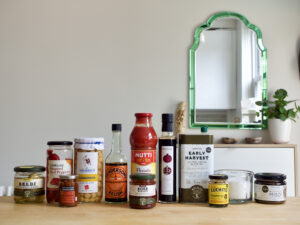When I was younger, a favourite jibe from some of my close friends was….
“He’s an angry young man.”
I was. I suppose I still am in a certain way but I’m getting better at understanding and noticing it.
I think I was probably born with a volatile temperament and never learnt to identify or manage it. I believe the trauma of my mother’s death and the drawn out experience of a grieving household, were the conditions that developed and entrenched it into a lurking aspect of my personality.
As I reached my teenage years, without my mother’s assertive guidance I began to drift. I became a withdrawn character in a lot of situations, quite socially awkward. After a promising start at school (my mother had been a teacher), my GCSEs slipped to unremarkable grades. I drifted through A-levels doing just well enough, then I drifted into university onto whatever course would have me. Fortunately I was bright enough not to fail spectacularly, but I was regrettably apathetic about it all.
Following university I drifted some more, ending up sub contracting as an industrial abseiler or ‘Roped Access Technician’. After a miserable couple of years the epiphany came. The weather was bleak and I was abseiling down the side of a block of derelict high rise flats undergoing demolition preparation. As I wrestled drilling an anchor point for a promotional banner, cold, wet and uncomfortable, I realised that was it.
I’d had enough.
I needed to start taking more decisive action and some control of my life before I totally wasted it.
I decided to follow the only constant in my life which was cooking.
I was going to be a chef.
After a bumpy start I soon felt more liberated in the kitchen than I could remember. I was good at it and felt more confidence in the role than I did anywhere else. For a time I was happy, but this wasn’t to last.
Historically, kitchens can be highly emotive environments. They are fast paced, stressful, physical, gruelling and pressured. Even the most polite and calm kitchen will operate with an underlying layer of tension, its’ civility resting on a knife edge.
A lot of emotion can go into cooking and this is widely publicised, even glorified in many instances. To my regret I’ve been emotional in the kitchen and lost my composure. Often it’s simply an expression of fatigue, adrenalin, ‘passion’ or frustration, but regardless there are still moments I’m not proud of.
As I moved through my career in restaurant kitchens, I became increasingly frustrated with the sacrifice, the daily struggle and the lack of future prospects. The experience of feeling angry became a more frequent occurrence in the day to day, but so too did the emotional aftermath.
I would feel very low for a prolonged period after a flare up of anger. It was the visceral manifestation of how closely related emotions like anger and sadness can be.
I tried to escape the loop I had created by extracting myself from the restaurant scene to find different opportunities as a chef. In the years that followed I had periods of optimism and enjoyment in alternative cooking environments but also despair and disappointment. Seasonal contracts came and went, employers went into administration and great concepts proved unsustainable. Nothing could offer a viable future.
My final role as a chef had promised so much, but after two years the familiar disillusionment with the direction of the role reemerged. In the third year I realised that I was reaching a career dead end.
At this point I reached an emotional meltdown; it was a cocktail of anger, frustration and despair but it had now reached dangerous proportions.
It’s not generally understood the relationship between depression and anger in men. Often habitual anger is actually just an expression of sadness, a symptom of our socially entrenched perceptions of acceptable masculinity. However we rarely approach an angry person entertaining the possibility that they are actually expressing deep sadness and despair. It’s admittedly difficult to empathise unless you’ve experienced it yourself.
It wasn’t until I was directed to Dr Mahogany at man therapy by my partner that I began to connect the dots. Sometimes you have to hit the bottom before you can learn how to climb back up.
I was angry, but more accurately I was also fundamentally unhappy. Negative emotions feed off each other and are often complementary. I felt I had failed at a career. I was afraid that I had committed too much time, that I was too far down a road to change course.
When I became a chef I already felt like I had wasted so much time. This weighed heavy and I doubled down to catch up. I did well and made up a lot of lost ground. To then feel that this effort had been squandered was tough to take.
I despaired. I was so angry at myself.
“You’re such a loser…..”
“You’ve blown it…..”
“Now what?”
Anger would quickly tag sadness to enter the ring once I was exhausted from the ferocity of my aggression. It was like the mental equivalent of a battering by a heavy weight boxer followed by a choke hold from a Jiu Jitsu master
Dealing with my anger has begun with trying to understand where it comes from and what it’s actually masking. It’s like a mental rot that becomes established over time which when left unchecked eventually damages something structural.
Learning about meditation and mindfulness in particular, has been pivotal in helping me to explore and start to understand the phenomenon of my feelings (particularly Waking Up by Sam Harris). Grasping the relationship between consciousness and thoughts begins a kind of mental liberation. From here, learning a simple skill like compassion towards myself (a concept I would have once shunned) has been a game-changer.
Make no mistake I’m still a novice at this.
Last week I knocked over a bowl of eggs onto the hob.
“Bollocks! You @£$!!***^$ Nobed!”
But I’m getting better.





